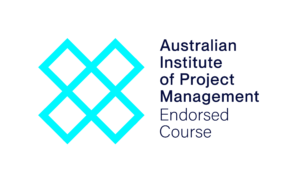
As a new project manager, you can be overwhelmed by all the approaches, differing methodologies and software tools used to manage projects.
First off, a new project manager needs to get their head around the project lifecycle and the various project processes that can be used in project management.
The most comprehensive way to do this is to complete an accredited program of learning such as a Diploma of Project Management. This comprehensive program will provide you with the knowledge and skills to effectively manage a project and, together with the wisdom of experience, this program will give you the critical thinking skills you to select the most appropriate methodology or Model to get the best out of your project.
Selecting the right methodology for your project is a skill that only a well trained and experienced project manager can make. Here are 21 PM methodologies (listed in alphabetical order) that make the grade:
1. Adaptive Project Framework
In this methodology, the project scope is variable. Additionally, the time and the cost are constants for the project. Therefore, during the project execution, the project scope is adjusted in order to get the maximum business value from the project.
2. Agile Software Development
Agile software development methodology is for a project that needs extreme agility in requirements. The key features of agile are its short-termed delivery cycles (sprints), agile requirements, dynamic team culture, less restrictive project control and emphasis on real-time communication.
3. Critical Path Method (CPM)
(CPM) explores the most important or critical tasks of a project by defining possible activity sequences and estimating the longest duration of each sequence. It helps figure out how long it will take to complete the work and what tasks will compose the scope.

4. Critical Chain Project Management (CCPM)
Critical Chain Project Management (CCPM) is the way to plan, implement and review various kinds of work in single- and multi-project environments. This management methodology uses Theory of Constraints (TOC) and the concept of buffers to establish improved task durations and manage resource-dependent tasks and activities.
5. Crystal Methods
In crystal method, the project processes are given a low priority. Instead of the processes, this method focuses more on team communication, team member skills, people and interaction. Crystal methods come under the agile category.
6. Dynamic Systems Development Model (DSDM)
This is the successor of Rapid Application Development (RAD) methodology (see no.15 below). This is also a subset of agile software development methodology and boasts about the training and documents support this methodology has. This method emphasises more on the active user involvement during the project life cycle.
7. Event Chain Methodology
Unlike other project management methodologies that focus on tasks, the Event Chain Methodology focuses on events and schedules. It’s a project scheduling technique that maps out uncertainty and risk in a project, and statistically estimates the impact that events will have—even external ones. Projects are able to mitigate negative effects of critical events or event chains once they’ve been identified.
8. Extreme Programming (XP)
Lowering the cost of requirement changes is the main objective of extreme programming. XP emphasizes on fine scale feedback, continuous process, shared understanding and programmer welfare. In XP, there is no detailed requirements specification or software architecture built.
Your Career in Project Management
Do you want to learn more about project management skills employers demand, emerging job roles and salaries, and recent industry insights?
Discover your career in project management.
PROJECT MANAGEMENT CAREERS PAGE
9. Feature Driven Development (FDD)
This methodology is more focused on simple and well-defined processes, short iterative and feature-driven delivery cycles. All the planning and execution in this project type take place based on the features.
10. Information Technology Infrastructure Library (ITIL)
This methodology is a collection of best practices in project management. ITIL covers a broad aspect of project management which starts from the organisational management level.
11. Joint Application Development (JAD)
Involving the client from the early stages with the project tasks is emphasised by this methodology. The project team and the client hold JAD sessions collaboratively in order to get the contribution from the client. These JAD sessions take place during the entire project life cycle.
12. Lean Development (LD)
Lean development focuses on developing change-tolerance software. In this method, satisfying the customer comes as the highest priority. The team is motivated to provide the highest value for the money paid by the customer.
13. PRINCE2
PRINCE2 is an acronym for Projects In Controlled Environments version 2 and, this UK government methodology takes a process-based approach to project management. This methodology is based on eight high-level processes.
14. PRiSM
Projects integrating Sustainable Methods (PRiSM) was developed by GPM Global as a means of creating a methodology that took environmental factors into account while being a repeatable, efficient process that could easily be incorporated into various large-scale projects. PRiSM is used primarily for large-scale real estate development or construction/infrastructure projects that may result in adverse environmental effects.
15. Rapid Application Development (RAD)M
This methodology focuses on developing products faster with higher quality. When it comes to gathering requirements, it uses the workshop method. Prototyping is used for getting clear requirements and re-use the software components to accelerate the development timelines. In this method, all types of internal communications are considered informal.
16. Rational Unified Process (RUP)
RUP tries to capture all the positive aspects of modern software development methodologies and offer them in one package. This is one of the first project management methodologies that suggested an iterative approach to software development.
Download our FREE 'Your Career in Project Management' Guide
Find the latest information in our eBook about a career in project management, including current job opportunities, skills you need, salary information and more.
17. Scrum
This is an agile methodology. The main goal of this methodology is to improve team productivity dramatically by removing every possible burden. Scrum projects are managed by a Scrum master.
18. Six Sigma
The method of Six Sigma was originally developed by Motorola to improve its production processes by eliminating defects (defined as “non-conformity of a product or service to its specifications”). Today Six Sigma is one of the most popular and worldwide trusted examples of project management methodology for ensuring the accuracy and speed of a process’s implementation through eliminating or minimizing waste.
19. Spiral
Spiral methodology is the extended waterfall model with prototyping. It arranges activities in a spiral pattern, each ‘loop’ is divided into 4 phases: Analysis, risk evaluation, execution and planning. This method is used instead of using the waterfall model for large projects.
20. Systems Development Life Cycle (SDLC)
This is a conceptual model used in software development projects. In this method, there is a possibility of combining two or more project management methodologies for the best outcome. SDLC also heavily emphasises on the use of documentation and has strict guidelines on it.
21. Waterfall (Traditional)
This is the legacy model for software development projects. This methodology had been in practice for decades before the new methodologies were introduced. In this model, the development lifecycle has fixed phases and linear timelines. This model is not capable of addressing the challenges in the modern software development domain.
As well as the Diploma of Project Management (BSB50820) CAL offers entry and advanced level training in many of the methodologies listed.
AIPM-Endorsed Diploma
CAL has received endorsement for our Diploma of Project Management (BSB50820) and Diploma of Project Management (specialising in Construction) (BSB50820) courses from the Australian Institute of Project Management (AIPM), the premier, longest-serving body for project management in Australia.
Having passed a rigorous review by AIPM auditors, adding an AIPM-endorsed diploma to your repertoire demonstrates your commitment to project management professional development and the elevation of industry practices.







